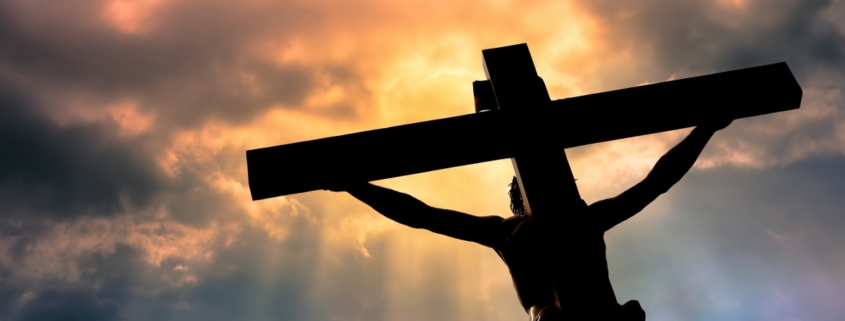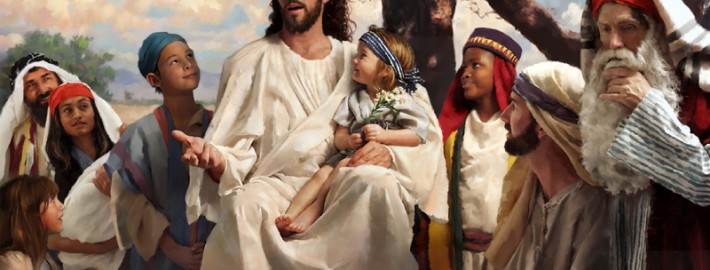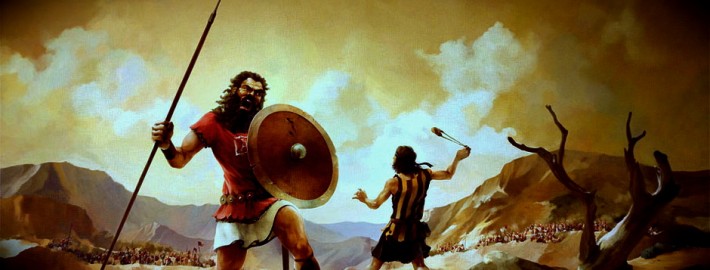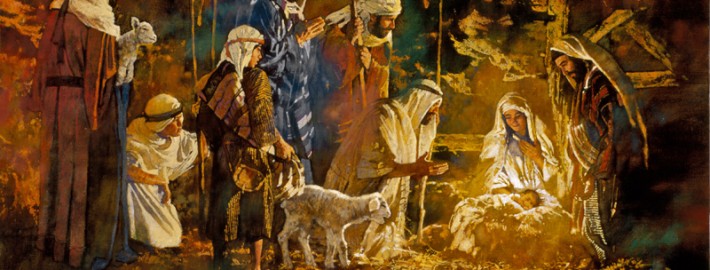False Teaching and Conspiracy Theories – The Perfect Bedfellows
Many have died, and until a solution is found on a global scale to deal with this pandemic, many more deaths are bound to be recorded. There is uncertainty. Jobs have been lost; incomes devastated; money is harder to come by. Families are going hungry, and a passenger sitting next to you in trotro who dares to cough receives a very suspicious glare. These are the days of Covid-19. The question on almost everybody’s mind is “why Covid-19”? Why now? Why this generation? Maybe even “why me?”, as you ponder it’s impact on you personally and/or your family. It is only human to seek answers, to seek for explanations and most importantly, to feel in control of your own destiny in times of uncertainty.
Therefore, it is only human to seek to tap into these fears to portray oneself as the one with answers, the one who knows the secrets of the times. And no such people are experts at this than religious folks. Which is why our so-called “prophets”, “men of God”, “bishops” and “archbishops” are falling over each other to promote one theory or the other about the Covid-19 pandemic and what is driving it. Not only does this posturing betray their ignorance of history of the world in general and that of the faith they claim to be representatives of, but it exposes them for who they are – men deluded by their desire for power and control than by anything else. And so, we will look at some of the typical tactics adopted by power-hungry religious leaders as compared to leaders seeking to be faithful to Jesus Christ.
But before we talk about these tactics, let’s discern the 1 motivation behind these tactics.
Preachers of Comfort, Not Suffering
Throughout the history of Christianity, one of the hallmarks of false teaching has been the tendency to preach messages that make Christians seem invincible to suffering, especially if they exhibit the right levels of something religious – be it “faith” or “confession”, repentance, church attendance, giving, prayer etc. Their focus is on the individual’s own self-preservation and advancement, instead of what Jesus clearly laid down for us with his own life – suffering for one another’s advancement.
Instead of what Peter said – “because Christ suffered for you, leaving you an example that you should follow in his steps.” (1 Peter 2:21), their preaching can be summed up as “Christ suffered for you, so that if you exercise the right level of religiosity, you will not suffer”.
However if Jesus left us example that we should “follow in his steps”, then caring for one another – enduring some suffering for the sake of not just a fellow Christian but all of humanity – just as God cared for and therefore died for us is at the center of what it means to be a Christian.
This denial of suffering (not just any kind of suffering but self-sacrifice for one another) is at the heart of almost every form of heresy that the church has known for its 2000-year history. This motivation is what then informs the following tactics deployed by such confused leaders.
Make Their Members Believe this is Unprecedented
The first thing such confused leaders engage in is to make Christians believe that such epidemics and pandemics have never happened before. They do this by pretending that Christianity only began when they (or their favorite past Christian leader) began practicing Christianity. This is easy for them to do, because 99% of the time even before this pandemic, they never preached about church history and the fact that Christianity is 2000 years old, blissfully ignoring the fact their church today is just a blip on the map of the Christian spectrum.
But if they were not so ignorant of history, they would know that the early Church faced its fair share of pandemics, most popular of which was named after a leader of the church in the 3rd century – Cyprian of Carthage. No, Cyprian didn’t cause the pandemic, neither did he curse the Roman empire with it. The Plague of Cyprian is named after him because he lived through it and documented it. But more significantly, his leadership during this period when the Roman empire was crumbling makes naming it after him even more appropriate. To that leadership, we will return later.
Many more epidemics and pandemics have followed the church beyond Cyprian’s plague, such as the Bubonic Plague of the 16th century, right in the middle of the Protestant Reformation, and yet the church continues to this day.
But if that pandemic was too far in history for today’s “men of God” to be aware of, I would have at least expected them to be aware and learn from the most recent one in world history – the Spanish Flu of 1918. But alas, if Christianity began with the founding of the churches of these “bishops” and “men of God”, perhaps their ignorance can be excused.
Divert Attention from their Failed Teaching
Having preached comfort for so long, any self-aware follower of such preachers would immediately ask questions about what these preachers have been preaching. Why has the “devourer” devoured my job, when I expected God to protect my job because I have been paying my tithes religiously? Why has my father (or another beloved family member) died from Covid-19 or it’s complications, when I exercised faith and prayed profusely for healing? Doesn’t God “know his own” anymore? Why has God allowed this Covid-19 to bring my business to its knees, such that I can’t even feed my family 3 square meals a day?
In difficult times like these, preachers of comfort need a means to divert the attention of their followers from these questions, and so are quick to fall for the next most comforting thing – conspiracy theories and “end of days” prophecies. Cue the likes of Chris Oyakhilome and his love affair with 5G conspiracy theories or American evangelicals and their beloved “rapture” teachings fused with biblical misinterpretations around “666 and the mark of the beast” as exemplified by people like John Hagee.
Such preachers make you think that Christians have always been waiting for some beast to dish out some form of “666” mark, ignoring to tell their followers that this teaching misreading of the book of Revelation only began with the Plymouth Brethren in the 19th century, especially during World War I. Please note, for 1800 years of Christianity, most Christians didn’t give a hoot about an “Antichrist” or “the beast” or 666 and a coming end of age. Most Christians awaited Jesus’ second coming, and that was the end of the matter.
But when comfort Christianity fails, diversions are needed to keep church members from devouring their leadership, and so a new (or old) enemy will always be found. And most of the gullible flock are ever desirous to believe, instead of asking deep questions. After all, asking questions is equal to not having faith in these circles of Christianity.
Preserve the System, at the Cost of the People
And so, we come to one of the most glaring aspects of false teaching – a need to “keep the system going”, instead of pausing for reflection about the effects the pandemic is having on people. Such preachers care more about the opening of church for “normal service” than they care about the lives of people. They will present themselves as the people with “faith” who are not allowing a pandemic to tell them how to “worship their God”, and will label the wisdom of scientists as evil, in so far as it prevents their “system” from going on as usual.
And it is here that we look to the leadership of Cyprian of Carthage. When the Plague of Cyprian hit the Roman empires, the rich were abandoning the cities in their droves to their comfortable country homes, leaving the poor to suffer. And yet Cyprian the bishop encouraged Christians to stand their ground and rather care for the sick and dying. Whiles some of the Christians inevitably succumbed to the disease and died in the process, some also survived and became important in the care for the poor and sick in this pandemic. By this single act of leadership alone, Christianity grew massively after the pandemic subsided simply because the church, led by Cyprian and other such leaders, focused on meeting the actual needs of those affected by the pandemic, not blame games and diversionary tactics.
It is this kind of leadership that is required of our teachers in these times. Yes, today we have science, showing us how to avoid the coronavirus as well as ways to stop it’s spread, and we should heed that advice. But beyond that, livelihoods have been destroyed, businesses have collapsed, children are going hungry, and poverty is on the rise as a result of Covid-19. And this is happening to both churchgoers and non-churchgoers alike. We know better not to be in close contact with people without the proper precautions, but there’s so much more that can be done to help whiles the medical people do their bit.
What we Don’t Need
What we don’t need are sermons castigating people for lower church attendance and giving.
What we don’t need are 5G lies and deceit, or nonsense about “mark of the beast via vaccines”.
What we don’t need are pontifications about a coming “New World Order” or a coming “rapture”.
What we need are leaders who will remind us of that is important – what historic, faithful, and true Christianity has always focused on – the simple commands of Jesus Christ, especially his command to “love your neighbor as yourself” (Mt 22:37-20). We need leaders who will rally us around working to mitigate the impact of this pandemic on the lives of actual church members, and then beyond that, our neighbors in the public square.
In Ghana, the Covid-19 Private Sector Fund has been able to put together money to build an infectious diseases center. That is worth commending, but those are the kinds of initiatives that I can expect of private sector businessmen. Given the amounts of money that sit in the bank accounts of some of our church denominations, Ghanaian churches could easily have done this and more, especially if they put their heads together.
But I’m less worried about what we do at the national scale than I am what we do at the local church communities.
“For I was hungry and you gave me something to eat, I was thirsty and you gave me something to drink, I was a stranger and you invited me in, I needed clothes and you clothed me, I was sick and you looked after me, I was in prison and you came to visit me.’” (Matt 25:35-36).
How many times did Jesus in the Gospels refuse to feed people because they didn’t “go to the synagogue or temple to worship on a Sabbath”?
How many times did Jesus in the Gospels say, “you are poor because you refused to pay tithes”?
How many times did Jesus in the Gospels say, “you lost your job because you didn’t have faith”?
Can our church leaders spend less time guilting us on coming to church and spend more time being obedient to Jesus – caring for actual real needs? Can we create structures that enable us to easily detect when people are “suffering in silence” in this pandemic?
Let us remember that we are not going to be judged by how well we knew 666, or how we quickly deciphered a New World Order via so called 5G or when “rapture” and “tribulation”. We will be judged by our deeds of love for fellow human beings, and that is the end of the matter.





